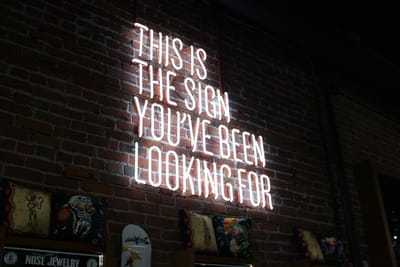Accessibility in Online Booking: Ensuring Your System is Inclusive
In today's digital age, ensuring accessibility in online booking systems is not just a legal requirement but a moral imperative. This comprehensive guide explores the importance of making your booking system inclusive for all users, including those with disabilities. We'll delve into the Web Content Accessibility Guidelines (WCAG), discuss compatibility with assistive technologies, and highlight key inclusive design principles. By implementing these strategies, you'll create a booking system that caters to a wider audience, improves user experience, and potentially increases conversions. Whether you're a small business owner or part of a large organization, this article will provide valuable insights to enhance the accessibility of your online booking platform.Table of Contents:

Understanding WCAG Guidelines
The Web Content Accessibility Guidelines (WCAG) provide a framework for creating accessible digital content. These guidelines are organized into four main principles: Perceivable, Operable, Understandable, and Robust (POUR).Perceivable: Ensure that information and user interface components are presentable to users in ways they can perceive. This includes providing text alternatives for non-text content and creating content that can be presented in different ways without losing information or structure.
Operable: User interface components and navigation must be operable. This means making all functionality available from a keyboard and providing users enough time to read and use content.
Understandable: Information and the operation of the user interface must be understandable. This involves making text readable and understandable, and making web pages appear and operate in predictable ways.
Robust: Content must be robust enough that it can be interpreted reliably by a wide variety of user agents, including assistive technologies. This principle focuses on compatibility and future-proofing your content.
Do you need a website? Want to build a website but don't know where to start? Our website builder is the perfect solution. Easy to use, and with the ability to customize to fit your business needs, you can have a professional website in no time.
Implementing Keyboard Navigation
Keyboard navigation is crucial for users who can't use a mouse or prefer keyboard controls. Ensure that all interactive elements in your booking system are accessible via keyboard. This includes form fields, buttons, drop-down menus, and date pickers.Use proper tab order to allow users to navigate through your booking process logically. Implement focus indicators to show which element is currently selected. This helps users understand where they are on the page.
For complex components like calendars or multi-step forms, consider adding keyboard shortcuts to improve usability. Always provide clear instructions on how to use these shortcuts.
Remember to test your booking system thoroughly using only a keyboard. This will help you identify any areas where keyboard navigation might be difficult or impossible, allowing you to make necessary improvements.
Optimizing for Screen Readers
Screen readers are essential tools for users with visual impairments. To make your booking system compatible with screen readers, start by using semantic HTML. This means using appropriate tags like Building a website with SITE123 is easy
Designing for Color Contrast and Visual Clarity
Color contrast is crucial for users with visual impairments or color blindness. Ensure that text and important UI elements have sufficient contrast against their backgrounds. The WCAG guidelines recommend a contrast ratio of at least 4.5:1 for normal text and 3:1 for large text.Use tools like the WebAIM Color Contrast Checker to verify your color choices. Remember that color shouldn't be the only means of conveying information. Always provide additional cues, such as icons or text labels, to supplement color-based information.
When designing your booking interface, aim for a clean and uncluttered layout. Use consistent styling and placement for similar elements across your booking process. This helps users with cognitive disabilities navigate your system more easily.
Consider offering a high-contrast mode or allowing users to adjust font sizes. These features can greatly improve the experience for users with various visual needs.
Ensuring Mobile Accessibility
With the increasing use of mobile devices for online bookings, it's crucial to ensure your system is accessible on smaller screens. Implement a responsive design that adapts well to different screen sizes and orientations.Ensure that touch targets, such as buttons and links, are large enough (at least 44x44 pixels) and well-spaced to prevent accidental taps. This is particularly important for users with motor impairments.
Avoid using complex gestures as the only means of interaction. Always provide alternative methods for actions like zooming or scrolling.
Test your booking system on various mobile devices and screen readers like VoiceOver for iOS or TalkBack for Android. This will help you identify and address any mobile-specific accessibility issues.
Remember that mobile accessibility goes beyond just visual design. Consider factors like load times and data usage, which can affect users with slower internet connections or limited data plans.
Implementing Clear Instructions and Error Handling
Clear instructions and effective error handling are crucial for all users, but especially for those with cognitive disabilities. Provide step-by-step guidance throughout your booking process. Use plain language and avoid jargon or complex terms.When errors occur, provide clear, specific error messages that explain what went wrong and how to fix it. Position these messages close to the relevant form fields and use both color and icons to highlight them.
Implement forgiving formats for inputs like dates or phone numbers. Allow users to enter information in various formats and handle the parsing on the backend. This reduces the likelihood of errors and frustration.
Consider implementing a progress indicator for multi-step booking processes. This helps users understand where they are in the process and how much is left to complete.
Provide easily accessible help options, such as tooltips or links to FAQs, throughout the booking process. This can assist users who may need additional clarification or support.





